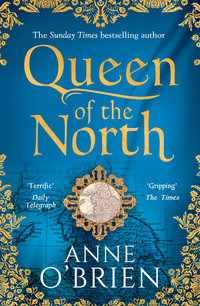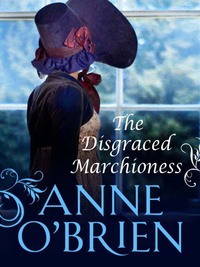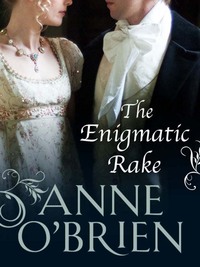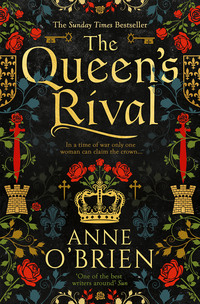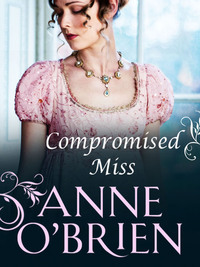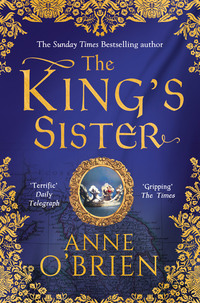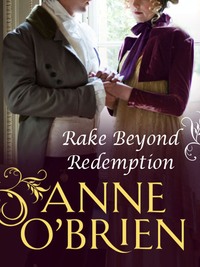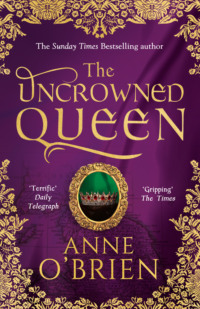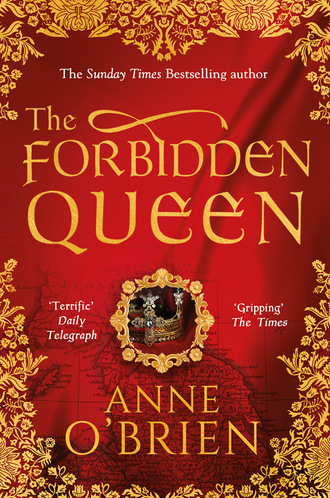
Полная версия
The Forbidden Queen
Hardly had we set foot on English soil than it was writ plain. He left me at Canterbury, going on ahead to prepare my reception in London. I wished he hadn’t. I would rather forgo the reception and have him with me. The constant critical concern over my presence, my appearance, my knowledge of how I should comport myself, unnerved and baffled me.
Henry placed his knife carefully beside the platter, aligning it neatly as he sighed. ‘Your damsels will surround you and support you.’
I had enough acquaintance with my damsels to answer smartly, ‘My damsels sneer and scoff at my lack of confidence.’
‘That’s nonsense, Katherine.’ Impatience was gathering like a storm cloud on Henry’s brow. ‘They are only your servants. They will obey you.’
‘But they do not like me.’
‘They don’t have to like you. Their opinion is irrelevant.’
Ridiculously, I felt tears press against my eyelids. This momentous day was being ruined by my lack of assurance and Henry’s lack of understanding. My enjoyment was fast sliding away between the two.
‘My brothers will stand beside you. The archbishop will do all that needs to be done. And you, Katherine, will play the role to perfection.’ Henry rose to his feet and, collecting the pile of documents from beside his platter—of superbly inscribed gold craftsmanship, of course—walked from the room. At the door he halted and looked back. ‘We have been wed for six months now. It is time that you were able to present yourself with more regal authority.’
Henry stepped out, then stopped again to add, ‘You have a duty to this country as Queen and as my wife. It is time that you fulfilled that duty. In all its aspects.’
It was a final, blighting condemnation of my failure to bear a child for him. It was also an order, stated with cold exactitude, leaving me feeling awkward and foolish. And ungrateful, despite having been plucked from obscurity and made Queen of England with all the splendour of rank and honour. Yet how cold was English precedent! How rigidly formal the demands of ceremonial, when my husband was prevented from standing at my side to imbue me with his grace and confidence. Would I ever grow used to it? Growing up enclosed behind Poissy’s walls, I knew nothing of living so prominently in the eye of the Court.
‘I will fulfil my duty. Of course I will. But I do not wish to be there alone.’ I addressed his squared shoulder blades and formidably rigid spine.
Henry did not hear me. Or chose not to.
And now my coronation banquet, which should have filled me with a sense of my achievement, merely enforced my unworthiness. As I sat in the place of honour and smiled at my guests, all I could think of was who was there and who was not. These high-blooded members of the English royal family, these English nobles and princes of the church, would people my future existence and dictate the direction of my future life. I had no one of my own.
So I must become English.
There was Lord John, who had made me welcome from that very first occasion when the war between hunting cat and wolfhound had filled me with fear. He smiled at me and raised his cup in a silent toast. I could call him John and trust his friendship.
I slid a glance to my right, to Henry Beaufort, clad in all his magnificence as Bishop of Winchester. Thin-faced, sharp-eyed, quick and keen as a fox, this was Henry’s uncle, a man very close to all the Plantagenet brothers. He had welcomed me like a niece, assuring me of his good offices. I think he meant it but I sensed a strong streak of ambition, a man who would let no one stand in his path. He had a wily eye. He patted my hand and nodded his encouragement.
On my left was James, hopeful King of Scotland. Dear James. His jaunty irreverence was balm to my sore heart.
I tried not to look across the table, in case I caught his eye, for there sat Lord Humphrey, Duke of Gloucester, another of Henry’s clutch of brothers, easily recognisable with the family traits of nose and brow, but his mouth had a sour twist. I recognised his dislike of me behind the false smile. Perhaps because I was French. Or my mother’s daughter. I was wary of him, and he was cool with me.
The one figure I looked for, and did not find, was that of Queen Dowager Joanna, Henry’s stepmother. Perhaps there was a reason for her absence. Perhaps her health was not good. I determined to ask Henry.
The banquet began. Because it was Lent, the range of magnificent dishes that were brought for our delectation was composed entirely of fish. Salmon and codling, plaice and crabs, sturgeon cooked with whelks—the variety was astonishing. And after each of the three courses a subtlety to honour me, a confection that elicited cries of wonder. A figure of me as Saint Catherine seated amongst angels, all constructed cleverly out of marchpane, then another of me holding a book. I hoped Saint Catherine was better able to master the contents than I. And then another Saint Catherine with her terrible wheel and a scroll in her hand, with gold crowns and fleurs-de-lys and a prancing panther, which made me laugh.
And where was Henry, to enjoy this moment with me? He would not be there because this was my day and he would not impose his own presence on it. The exchange, becoming increasingly impatient on his part and increasingly hopeless on mine, had ultimately undermined all my pleasure.
Oh, I wished I had more confidence. The weight of the jewelled crown on my head did nothing to enhance it. Why did I not have the assurance of Beatrice, who was laughing and simpering with the gallant on her right? How could a newly crowned and anointed Queen of England be so gauchely tongue-tied? I picked at the dish of eels roasted with goujons of turbot.
I made a token gesture of eating, yet when another dish, a crayfish in a golden sauce, was placed before me, I abandoned my spoon. This roused unsubtle debate over possible reasons why my appetite was impaired. Could it be that I carried England’s heir?
No, it could not. My ability to quicken was becoming an issue.
‘You were magnificent, Katherine.’
Back at the Tower, leaping to his feet as the little knot of us, full of laughter and comment, entered the room, Henry abandoned his cup of wine—for once he had been lounging at ease, ankles crossed, a hound at his feet—to clasp my shoulders in his strong hands and kissed my cheeks.
Delighted at such a show of spontaneous admiration, I returned his smile. The apprehension that had dogged me through the whole performance dropped away, along with the ermine cloak that Beatrice bore away to preserve for the next occasion. Henry’s praise expressed with such immediacy was a rare commodity and to be valued.
‘I think I did nothing wrong,’ I replied hopefully, as his hands slid down my arms to link fingers with mine. Joy spurted in my affection-starved heart.
‘You did it to the manner born,’ John assured me.
‘Very gracious, Your Majesty!’ James grinned.
Humphrey said nothing, busying himself with cups of Bordeaux.
‘You made a magnificent Queen,’ Bishop Henry added. ‘You would have been proud of your wife, Hal.’
‘So I am.’ Henry had forgotten our clash of the early morning and was in good humour, reminding me of our first meeting when he had allowed his admiration for me to shine in his eyes. ‘And a more beautiful one I could not have chosen. Did I not say from the beginning that you would make me a superb wife?’
He kissed my fingers, then my lips. He was proud of me. More than gratified, I tightened my hold, heart throbbing and my whole body flushed with my achievements and my love for this man who saw through my fragile facade to my possible strengths and encouraged me to stand alone. With him I would be confident. I would hold my head high.
‘Oh, Henry…’
What I would have said I had no idea, for I could hardly pour out my love at his feet, but Henry released my hands and turned to look at John. ‘About tomorrow…’
‘Bishop Henry said we would go on progress,’ I said, emotion still bubbling inside me. ‘So that the people of England will know me.’
‘I leave tomorrow,’ Henry said with a quick glance, taking the cup offered by Humphrey.
My belly lurched, clenched, but I kept my expression impassive. A Queen of England must exercise composure. ‘And what do I do?’ I asked carefully. My smile was pinned to my face.
‘Remain here. I intend to make a circuit of the west. And then I’ll go on to…’ I closed my eyes momentarily, accepting that Henry’s discussion of his itinerary was more for the benefit of his brothers and uncle than for mine. ‘They need to see me after so long in France. And I hope to call on their loyalty in hard cash. The army’s a constant drain—will you organise a body of royal commissioners to follow on behind to receive loans that are freely offered—or not so freely? It’s quicker than going cap in hand to Parliament.’
‘I’ll organise it,’ Humphrey offered.
‘Do I go with you?’ James asked wistfully.
Henry shook his head. ‘Stay in London.’
So he was rejected too. Since there was no reason for me to stay with what was fast becoming a discussion of financial and military policy, masking my raw dismay behind a spritely step, I made my way to the door.
‘If you will excuse me, my lords.’
Henry looked up from the list of loans already promised, handed to him by Humphrey. He promptly cast the list aside and covered the space between us.
‘Forgive me, Katherine. How unthinking I was, and after your glorious day.’ His smile was wry. ‘I know you’ll understand by now that when I am focused on the next campaign, I forget the needs of those around me.’ The smile twisted, even more ruefully, appealingly. ‘I’ll not abandon you completely,’ he said. ‘I have made plans for you to join me at Kenilworth. We will go on from there together to the north. We’ll enjoy a somewhat late honeymoon, without the pressure of battles and sieges. You’ll like that, won’t you?’
‘Oh, yes!’
All my hopefulness returned. So I was not to be entirely cut out of his life. If we travelled slowly together and he was not engaged in warfare, if I could match the sort of wife he wanted and show him that I loved him, then he would come to love me. I knew that he would.
Henry came to me that night, entering my room without a knock, and I was pleased to stretch out my hand in greeting. Stripping off his clothes, he assuaged his need with customary efficiency and speed.
‘Stay with me,’ I invited. ‘Stay with me because tomorrow you will leave me.’
‘I cannot, Katherine. Not tonight. When we are on progress, then I will. But I have too many demands on my time as yet.’
And I am not one of them.
‘Will you miss me?’ I asked, ingenuously. ‘Will you miss me just a little?’
He looked surprised. ‘Of course. Are you not the bride I always wanted?’
‘I do hope so,’ I replied.
‘You are, without a doubt.’
With a kiss to my lips, a smile and a graceful bow, at odds with his informal chamber robe, Henry left me holding tight to his assurances. As it must with any woman, it crossed my mind: did Henry, handsome and powerful, perhaps have a lover? Did he go from my bed to the arms of one of the palace servants who could entice him with sharp wit and languorous caresses?
I did not think so; I had no earthly rival. I had to fight against a God-ordained obligation to England and Henry’s vision of his country as the pre-eminent power in Europe. I did not think I would ever emerge the victor in such a contest.
Holy Mother, have mercy on me. At my prie-dieu I prayed harder than I had ever prayed. If I carried the heir he so desperately desired, Henry might acknowledge me as part of his dream for the future, rather than as a burden to be shouldered or put aside as time and necessity dictated.
‘How does a woman fall for a child?’ I asked. Alice’s much-vaunted feverfew was not working. ‘What must I do to ensure my fertility?’
What a collection of raised brows and rounded mouths. Prayer was good, but I knew I must take counsel elsewhere. I steeled myself to it.
There was a silence in the artlessly decorative group of damsels, stitching and reading in the late afternoon.
Had I shocked them? Did English Queens not ask such intimate questions? I felt my face colour with heat but my need was greater than my shame. They—my damsels—had been universally cool since our establishment back in their own milieu. Poised, at ease in the ceremonial ways of the court, I thought that they scorned my lack of aplomb. Respectful for the most part, for they would not deign to be less than deferential towards the King’s wife, there was no warmth for their foreign mistress. I found them hard to read. I had made no friends there. With no practice in making friends, I had no pattern of experience to use to court and win affection.
But this was urgent. I needed advice.
Meg pursed her lips. ‘Your hips are very small, my lady, for sure. It can make childbearing difficult.’
My hands clenched into fists, well hidden in the soft silk of my skirts. So the fault was mine that I did not conceive. As perhaps it was, but I heard the disdain for my failure behind the carefully phrased fact.
‘His Majesty is capable, my lady,’ Beatrice observed. They would know how often Henry came to my bedchamber, of course.
‘Yes.’ The heat in my face became more intense.
Joan, the youngest of my damsels, with a kinder eye, spoke up. ‘My sister says that if you grind the dried testicle from a wild pig into powder, mix it in wine and drink it, the result is excellent.’
‘Do we have a testicle of a wild pig?’ I heard myself asking, unnerved at the advice.
A silence. A pause. Then my damsels erupted into laughter, with an edge that was, to my mind, not kind at all. I thought they looked at me with pity, even when Alice took them to task.
‘I have heard of such a nostrum, Joan, but that was not helpful. Unless you are volunteering to go and kill a wild pig for us? And you can take Beatrice with you. Her scowl will kill a boar at twenty paces. I think we can do better. If you carry a walnut in its shell, my lady, it will strengthen your womb and aid fertility.’
‘If you eat walnuts, it is said to cure madness.’
I froze, heated skin now pale and cold at this unexpected wounding. Anguish ripped through me that Cecily would make it so personal an attack. Could they be so deliberately cruel? I turned to her, prepared to defend my father.
‘Enough, Cecily!’ It was Beatrice who came to my aid. ‘Your manners are not what your mother would wish for you. I suggest you say a rosary before dinner and pray to the Holy Virgin for humility.’
While to me, with compassion in her face, Alice advised, ‘We will tuck some leaves of polygonum bistorta into your sleeves. And if you will eat some of the seeds of the Helianthus flowers, my lady…’
‘And you, Cecily, might pray that fragility of mind never touches one of your family.’ Beatrice continued her admonitions to my pert damsel. But I knew that Beatrice’s loyalty was to Henry and the as yet unconceived heir rather than to me.
‘Forgive me, my lady.’ Cecily’s eyes dropped before mine.
‘Thank you,’ I said to Alice, smiling at Beatrice, hanging on to dignity.
‘It’s early days,’ soothed Alice. Then added sternly, ‘And this flock of clucking fowl should know better than to mock a woman in such need.’
My damsels sniffed at the reprimand and laughed in corners, even when they knew I would hear them.
No, I made no friends with my ladies in waiting.
Perhaps it was at Leicester where I eventually caught up with Henry on his progress. Or perhaps it was York. Or even Beverley. Or perhaps I did not actually go to Beverley. I remember Henry enveloping me in his arms, lifting me from my litter, welcoming me with gratifying heat, but in the end one town merged with yet another, towns I did not know and have little memory of, where the inhabitants thronged the streets to cheer us, fêting us with banquets and entertainments and lavish gifts of gold and silver. So pleased they were to see and entertain their King after so long an absence.
And his new French wife, of course. Henry continued in good mood, receiving the professions of loyalty with gracious words, before demanding taxes and reinforcements for the renewal of war. I knew the direction of Henry’s thoughts. How could I not, when boxes of documents accompanied us, packed into carts that lumbered along in our wake? But Henry smiled and bowed and was careful to wish me good morning and ask after my health.
After my failure to fulfil his hopes on that last night in London at the Tower, Henry occupied my bed with flattering frequency, his desire for an heir taking precedence even over the Exchequer rolls. With tender kisses and chivalrous consideration, he put me at my ease, and I felt more attuned to Henry than I had ever been.
‘I am proud of you, Katherine,’ he said more than once when I had helped him charm the citizens of some town into subscribing to the royal coffers.
‘That pleases me,’ I replied.
Henry kissed me on my mouth. ‘I knew you would be an excellent wife.’
And my heart kicked against my ribs in a not unpleasant reaction. This was the closeness I had looked for. When he took the time to escort me through the fine streets of York and into the magnificent Minster, I could not believe my good fortune. Henry was indulgent and I relaxed when he held my hand and introduced me as his incomparable wife.
But at Beverley—or perhaps it was York—there was an unnerving change. I saw the exact moment it happened.
We had taken possession of yet another suite of chilly and inconvenient rooms in the accommodations belonging to the church, and letters arrived at daybreak as we broke our fast after Mass. There was nothing unusual in this to draw my attention from the prospect of two hours watching the craftsmen of the town perform yet another play of their own devising. Noah and the Flood, and the whole array of animals—or at least a goodly sum of them portrayed by the masked children of the guild families.
Henry opened the documents one after the other, one hand dealing efficiently with bread and beef, the other smoothing out the well-travelled parchments. He read rapidly, with a brief smile or a grunt and a nod, pushing them aside into two neat piles, one for immediate attention, the other for disposal. Henry was nothing if not meticulous.
And then he hesitated. His hand clenched the letter he held. Very carefully he placed the bread and the letter on the table, and brushed the crumbs from his fingers. His eyes never left the written words.
‘What is it?’ I asked, putting down my spoon. The stillness in him was disquieting.
I might not have spoken. Henry continued to read to the end. And then started again at the top. When it was finished, he folded the document and tucked it into the breast of his tunic.
‘Henry?’ By this time I had progressed from the formal address of ‘my lord’.
Henry slowly raised his eyes to my face. His expression did not change by even the least tightening of muscles but I thought the news was ill. The opaque darkness of his eyes, reminiscent of the dark pewter of the puddles in the courtyard of my childhood home under a winter sky, told of something that had displeased or worried him. His lips parted as if to speak.
‘Is it danger?’ I asked.
He shook his head. ‘No danger. No.’ It was as if he shook his reactions back into life, to re-engage his senses. Bread and meat forgotten, he clenched his hand round the cup at his elbow and gulped the last of his ale.
‘Is it bad news, then?’ For however much he might struggle to maintain it, something had unexpectedly shattered his impassivity.
Stiff-limbed, Henry stood. ‘We are expected to attend the mummers and official welcome this morning.’ As if I did not already know. ‘Be ready at eleven of the clock.’
He walked from the room with no further comment or explanation, my astonished gaze following him. And the day passed as so many before, with Henry the ultimate monarch, charmingly attentive to his loyal subjects, delighting them with his attention to their preparations but completely devoid of emotion. Noah’s ark might have sunk without trace and the animals met a watery death for all the enjoyment he had in it.
‘Henry.’ I tried as we sat side by side to sample the meats and puddings at the formal banquet. ‘Has something happened to disturb you?’
I could not imagine what it might be. The obvious answer was a reversal in English interests in France, but that would have prompted a council of war, not a withdrawal into oyster-like silence. Was it rebellion in England? If so, we would not be sitting here calmly eating the beef and toasting the health of our hosts, who still wore the costumes of their lively play. So not rebellion.
‘Not a thing,’ Henry replied, sotto voce, ‘unless it is the toughness of this meat. I advise you to try the fish.’
I gave up.
Henry did not honour me with his attentions that night. I had hoped he might. Could I not persuade him to tell me what was in his heart? But he did not come.
Next morning, when we were to attend Mass, as I made my way to the private chapel we had used on previous mornings, I was informed by one of Henry’s squires that Mass would be celebrated in the body of the church with a full congregation from the town.
Escorted there, I found Henry already kneeling. Conscious of my tardiness, I knelt at his side without comment. He acknowledged me with an inclination of his head, no more than a glance, but there was time for nothing more as the polyphony began and the bishop took his place before the altar. A quiet stillness settled in me as the familiar words and gestures of the priest wrapped round me and my mind was overwhelmed by the intense colours from the great east window. The blue of lapis and cobalt, the blood red of rubies and garnets. Everything was as it should be. Of course nothing was amiss. Would Henry not have said?
There—there were the prayers for Henry and England, for me his Queen and—
My breath caught on an inhalation as the bishop’s less than sonorous tones rolled out.
‘We pray for the departed soul of Thomas, the Duke of Clarence.’
Thomas, Duke of Clarence. Henry’s brother. Dead! When had this happened? Hands gripped tight, I glanced across at Henry, but his gaze was fixed on the altar.
‘… cruelly done to death in France. We thank God for his courageous life and pray for his departed soul.’
Henry’s brother was dead. So that was the news that had arrived. He had known since the previous morning and had said nothing to me. I might have no experience of family relations with my brothers except for suspicion and hostility, but Henry had a keen closeness with his brothers. How could he show so little grief? If Michelle were dead, would I not grieve? I would not be silent. I would weep, howling out my hurt for all to hear. My chest was tight, my breathing shallow, my emotions all awry: my sorrow was for Henry, but why had he not told me the truth?
The Mass proceeded to its end, and as we walked side by side from the vast arch of the church into the sunlit warmth of the churchyard, I stopped, caught hold of the fullness of Henry’s tunic and faced him.
‘You have known of this since yesterday,’ I stated. ‘Since the letter arrived.’
‘Yes.’
‘Was it a battle?’
‘Yes. At Bauge.’ He was silent for a long moment, looking back towards the precise carving of leaves and flowers, interspersed with grinning stone faces, that rioted around the doorway, but I did not think he saw them. His mind was in France, on a battlefield where English pride had been trampled in the dust and a royal brother done to death, and behind his implacable mask I saw his sorrow. Would I actually have to ask if it was an English defeat?
‘Was it…?’
‘It was a rout,’ he remarked impassively, gaze snapping back to my face. ‘Your inestimable brother the Dauphin all but destroyed my army and killed my brother. Thomas rode against superior forces and was cut down in the thick of it. He was one of the first to die. Bad tactics, I warrant you—he always had more courage than sense and to wear a jewelled coronet on his helmet was downright foolhardy. But still. My army was beaten and my brother slain.’





